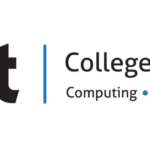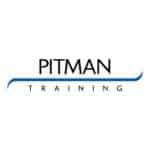Microsoft Office suite is the world’s most popular desktop computer programme. Learning how to use the Office applications correctly and efficiently is more than useful. . .
Most Irish businesses and organisations make use of at least one Microsoft Office application, whether to write letters or reports, organise invoices, make presentations or send email. Therefore knowing at least the basics for using the various Office applications is almost a necessity for everyone these days, whether you want to work for a multinational operation in the IFSC or on the family farm.
The Microsoft Office suite is made up of a number of different applications, which all work individually and which are used to do different jobs. The most commonly used application is the word processor Microsoft Word, which is used for writing and editing documents such as letters, reports, email, invoices, essays and pretty much anything else you can think of. Microsoft Excel is a spreadsheet application and can be used for tasks ranging from keeping simple accounts to organising warehouses of data in sophisticated databases. Microsoft PowerPoint is used for making, organising and delivering presentations. Microsoft Outlook is used for sending and retrieving e-mail messages and also as a powerful contact management and resource scheduling tool.
Part-time Microsoft Office courses come in all shapes, sizes, lengths and delivery methods. Basic Office beginners’ part-time courses give an introduction to using each application, and show you how to open files, input and edit information, use the toolbar to carry out simple tasks such as cutting and pasting text, print documents and save and manage files. Other courses concentrate on individual programmes and give you a good working knowledge of Office, Excel or PowerPoint in a workplace environment.
More advanced courses can concentrate on one specific function (such as online possibilities, programming languages in Office or database administration), or show users how the different applications can work together to perform complicated tasks. Some people take courses in the evenings or at weekends, while others might be able to organise a day or two off work to take a course. If you can show your boss how useful it will be for work, then he or she might even be interested in paying the course fees. E-learning (online) Microsoft Office courses are also growing in popularity.
Basic Microsoft Word courses are among the most widespread IT nightcourses in Ireland. Students learn skills and abilities such as how to create letters, memos, fax covers, reports and other documents; edit text using cut and paste functions; modify the style, colour and font of text; use formatting elements such as page numbers, headers and footers and bullets; create, save, print and organise documents on your PC. More advanced courses can look at extra functions such as mail merge, graphics, tables and formatting long documents such as reports or newsletters.
Introductory Microsoft Excel courses will look at things like data entry, formatting, editing and printing simple database documents. An important outcome is to be able to sort, find and organise information to allow users to perform tasks such as invoice generation, budget design and spreadsheet manipulation. More advanced courses will teach how to customise Excel’s standard templates and record macros for common repetitive tasks, work with Excel VBA code, and integrate Excel files with accounts, CRM or other software packages.
A beginners’ PowerPoint part-time course shows students how to create, design and format slides for presentations, add elements such as text, images and graphics and put them together into a professional looking presentation. More advanced courses look at elements such as adding video or complex graphics, and may include options such as web-design, professional presentation skills and technical set-up training in connecting laptops, digital projectors and screens.
Other Office courses available include Microsoft Access classes which look at the structure, design and capabilities of databases written using Microsoft Access and Outlook courses that teach users how to manage and manipulate e-mails, sort and organise e-mail messages, schedule meetings and other resources.
There are a number of specific qualifications available if people are looking to prove to potential employers that they have a knowledge of the different Office applications, or if you just want to be able to hold some tangible evidence of your new skills in your hand. MOS is the official Microsoft Office Specialist certification programme from Microsoft, and is available at basic or master level. The ECDL certification also concentrates heavily on Office skills.
So, if you’re a jobseeker looking to add some highly valued skills to your arsenal, or an office manager seeking to improve on your team’s skillset – Microsoft Office courses are the perfect place to begin.














